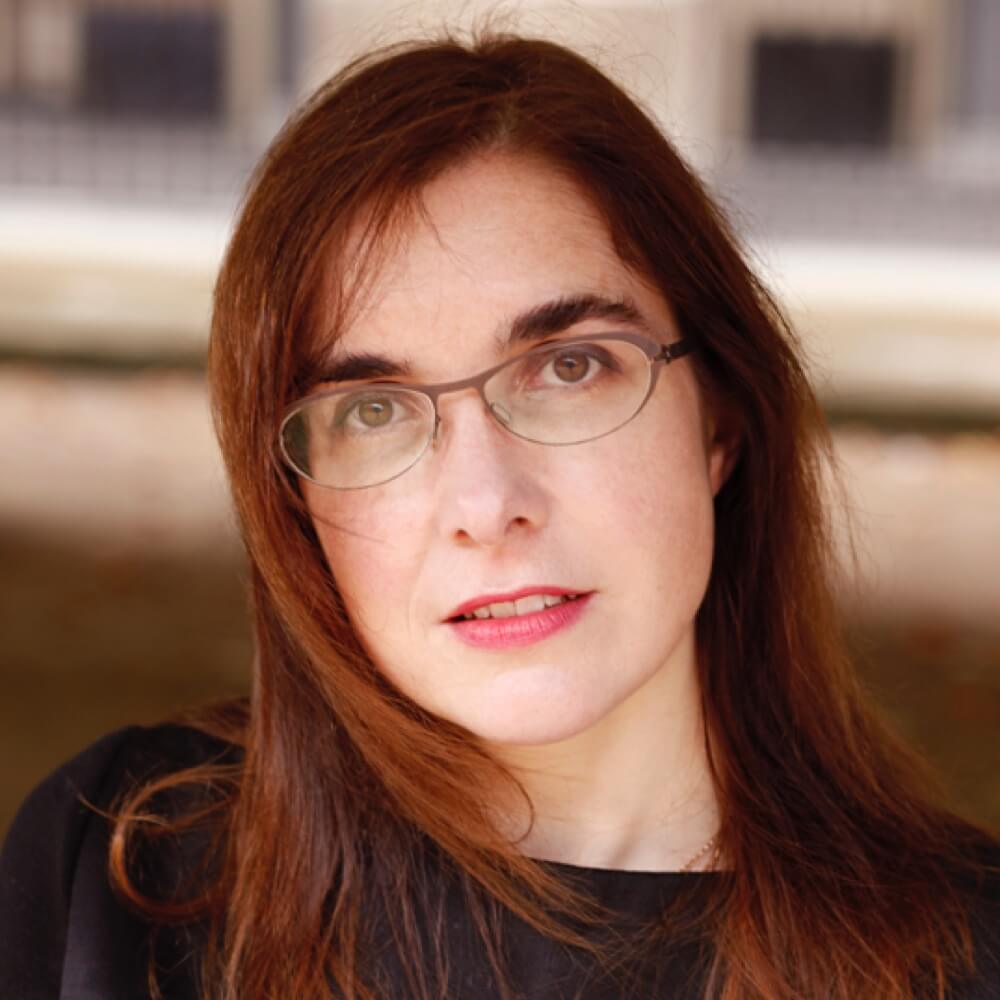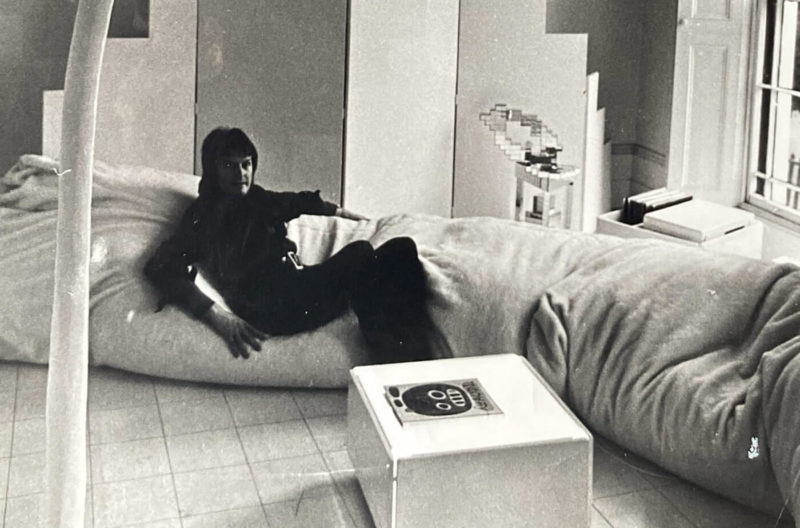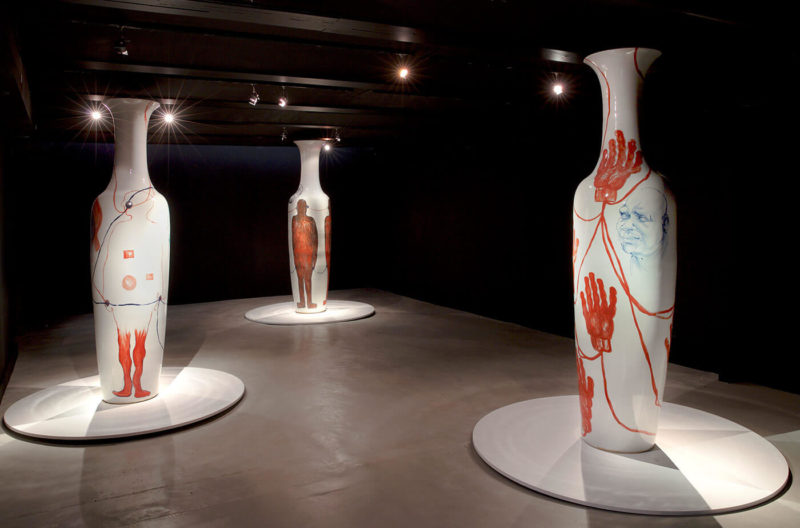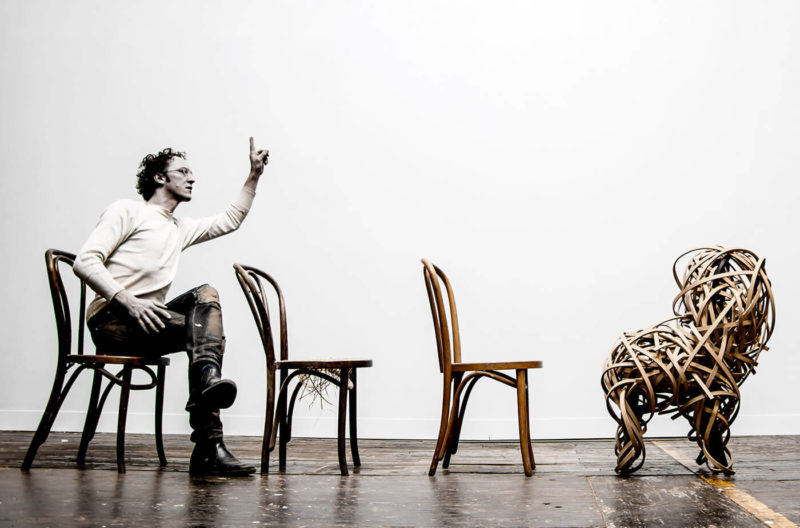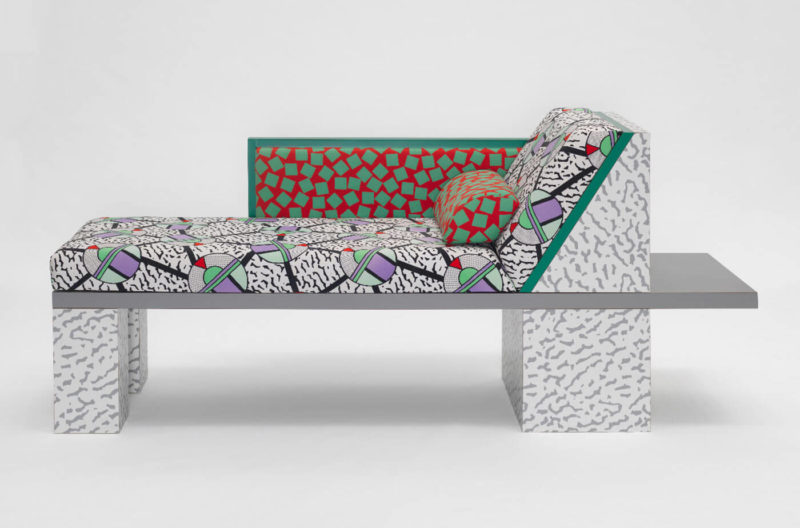Paris Design Week 2022
Anna Sansom reports back on five captivating exhibitions of collectible design.
8th– 17th September 2022
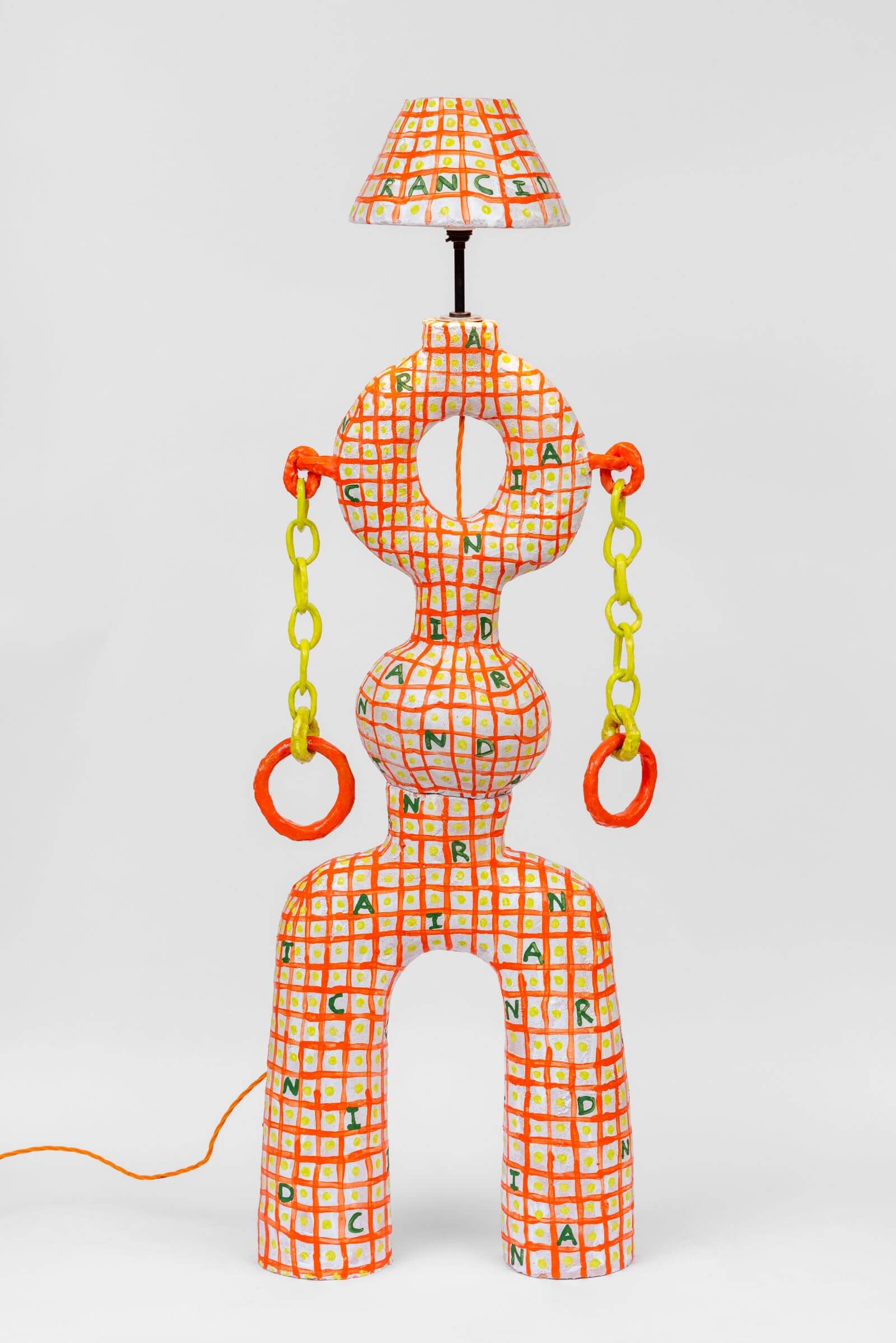
Xanthe Somers, ‘RANCID’ floor standing lamp, 2022
COURTESY: Xanthe Somers & Galerie Revel / PHOTOGRAPH: © Photo Deniz Güzel
THE FRENCH CAPITAL kicked off la rentrée, when everyone returns to work and school after the summer break, with Paris Design Week. The roster of eclectic events happening all over the city coincided with interiors fair Maison & Objet.The theme of this year’s edition was ‘Metaverse’, prompting digital projects about technology’s influence on today’s aesthetics and NFTs serving to accompany and promote physical works. In tandem with digital acceleration, there was also a valued emphasis on what is called “slow living” – the art of craftsmanship and hand-made work. We toured the different design districts to discover the strongest offerings of collectible design.
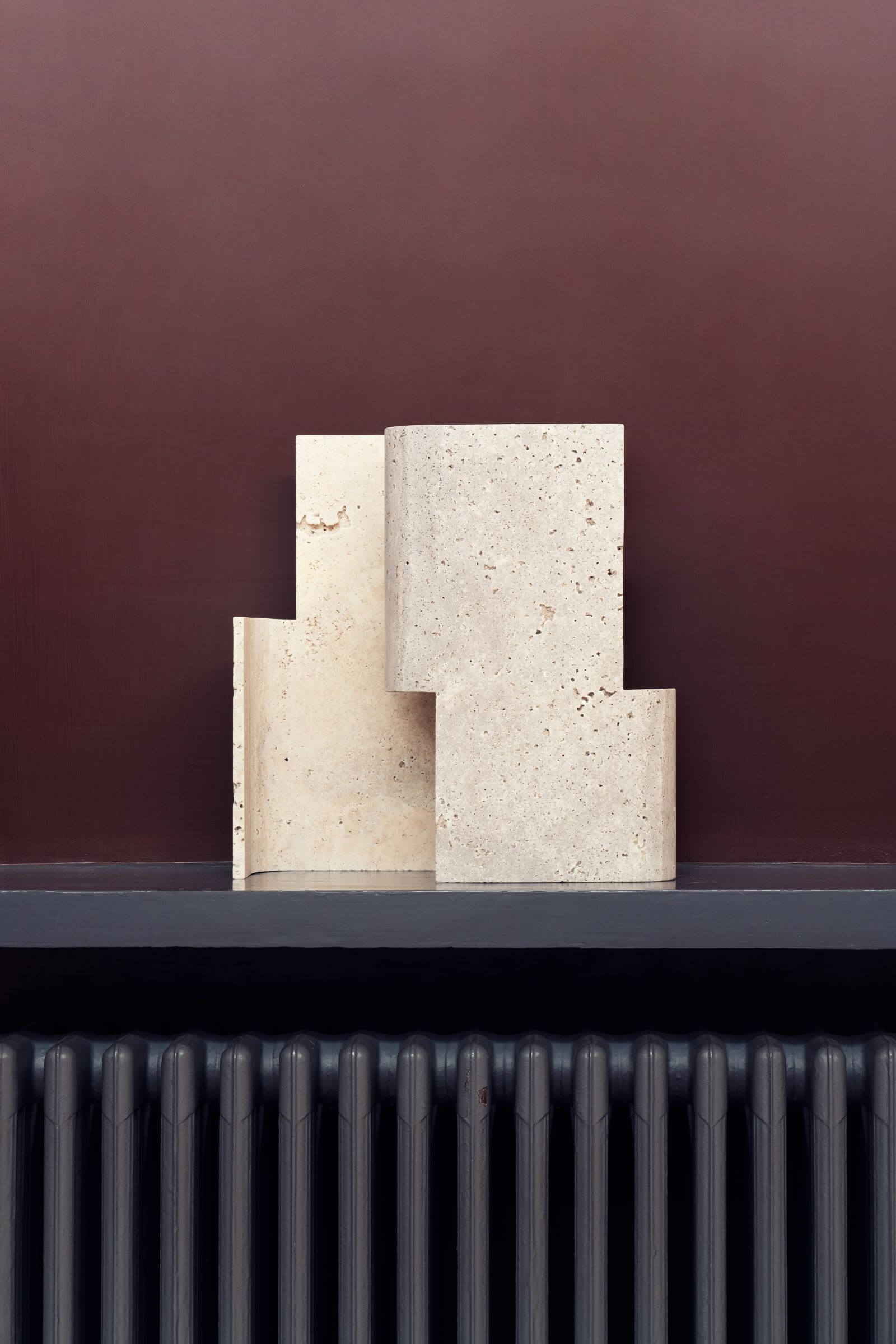
Exhibition view, ‘Anthony Guerrée: Fragments’, produced by M éditions, on show at Fondation Le Corbusier
COURTESY: Anthony Guerrée, M éditions & Fondation Le Corbusier / PHOTOGRAPH: FLC ADAGP Alexandre Tabaste
‘Anthony Guerrée: Fragments’ at Fondation Le Corbusier, until 24th September 2022
Down a leafy cobbled square in the sixteenth arrondissement lies an architectural gem: Fondation Le Corbusier Maison La Roche. Le Corbusier designed the house in the 1920s for the banker Raoul La Roche who, three decades later, agreed to donate it to Le Corbusier’s foundation.
Until now, the foundation has never participated in Paris Design Week. But this year, M éditions, which produces furniture made with marble from Marbreries de la Seine, convinced it to exhibit the work of Anthony Guerrée. “The idea is to explain the dialogue between my work and that of Le Corbusier without disturbing anything,” says Guerrée, referring to how furniture, paintings and photographs by Le Corbusier remain untouched.
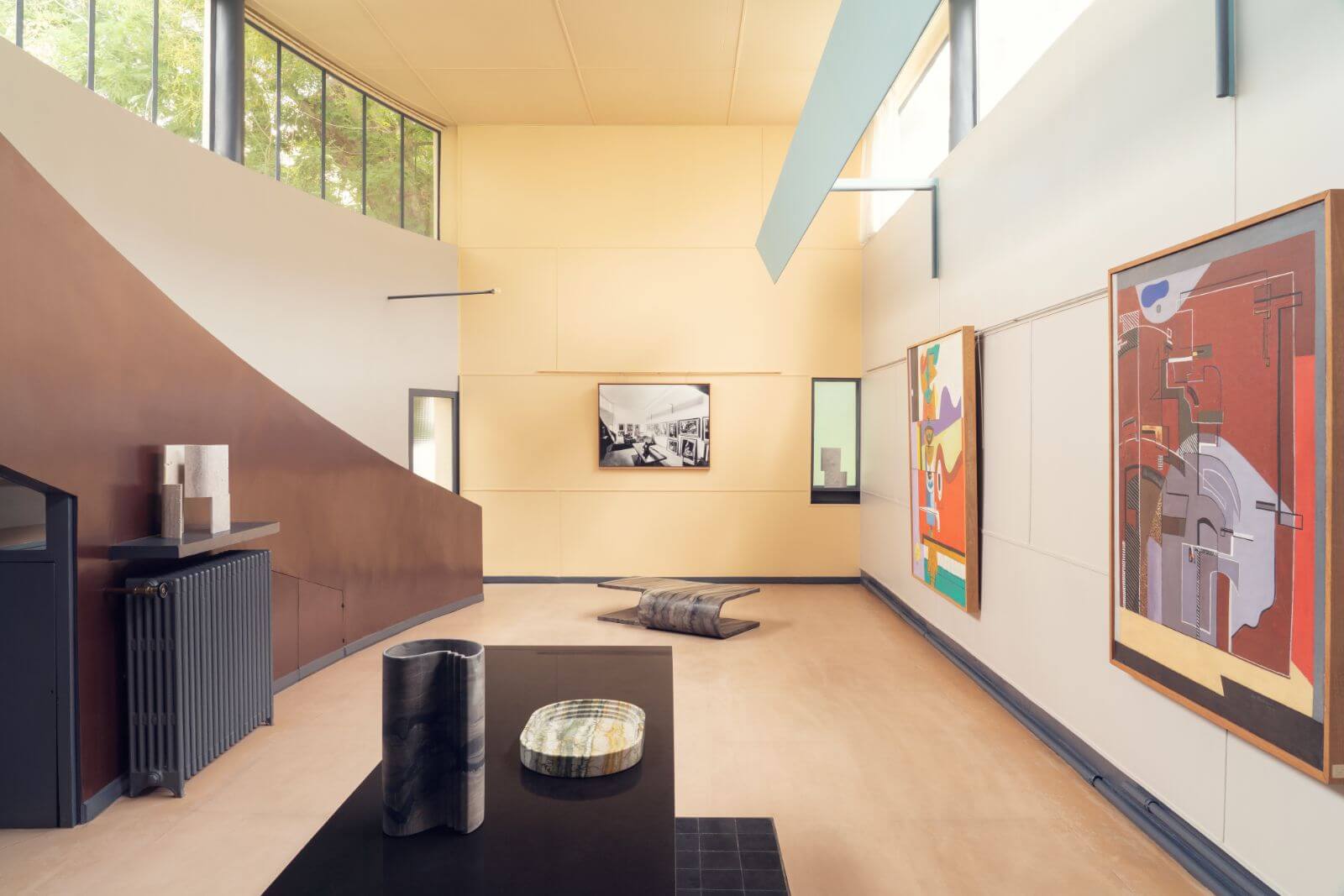
Exhibition view, ‘Anthony Guerrée: Fragments’, produced by M éditions, on show at Fondation Le Corbusier
COURTESY: Anthony Guerrée, M éditions & Fondation Le Corbusier / PHOTOGRAPH: FLC ADAGP Alexandre Tabaste
Drawing inspiration from the three classical orders that denote the form of Greek and Roman columns (Doric, Ionic and Corinthian), Guerrée made pieces of curvilinear-edged furniture from Brazilian marble. The works reflect Le Corbusier’s long voyage in 1911 to discover ancient architecture, which took in Athens and Pompeii.
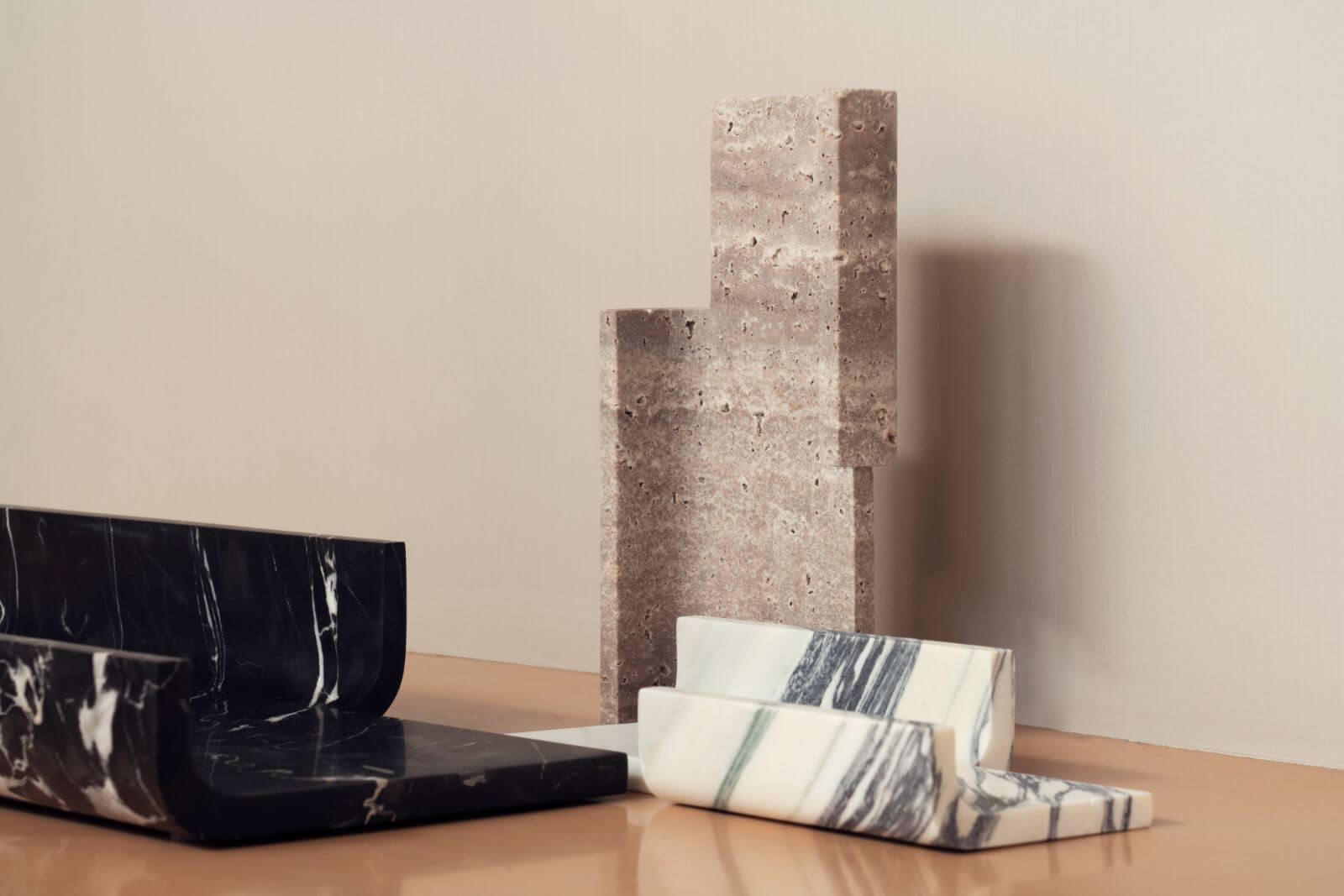
Exhibition view, ‘Anthony Guerrée: Fragments’, produced by M éditions, on show at Fondation Le Corbusier
COURTESY: Anthony Guerrée, M éditions & Fondation Le Corbusier / PHOTOGRAPH: FLC ADAGP Alexandre Tabaste
Guerrée also reflected upon the silhouette of Le Corbusier’s ‘LC4’ chaise-longue and combined machine-cut and manual-finishing in the production of the pieces. There’s also a recycling aspect. The blocks of stone are leftovers from architectural projects that remained in stock at Marbreries de la Seine for “for 30 years”, says Guerrée.
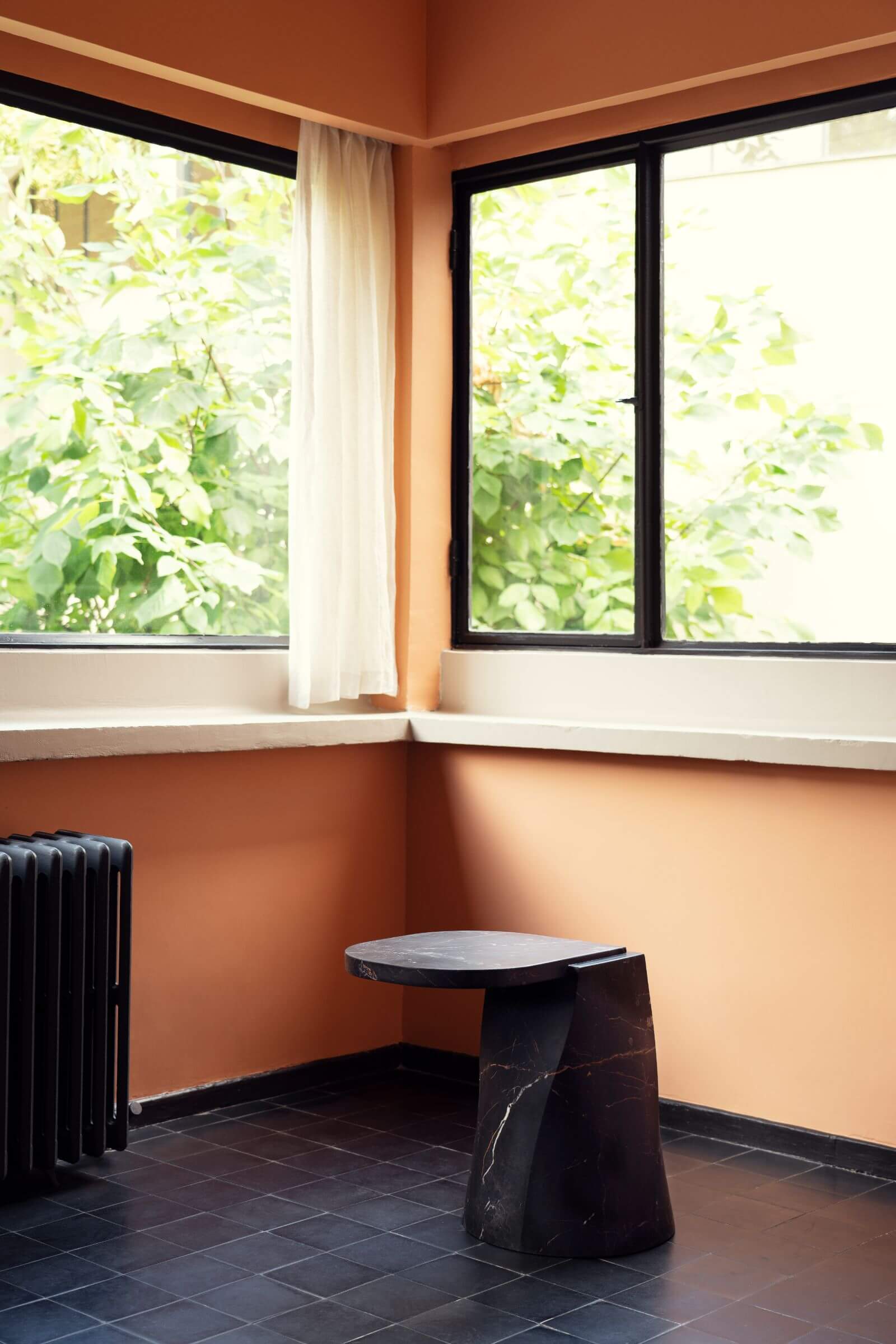
Exhibition view, ‘Anthony Guerrée: Fragments’, produced by M éditions, on show at Fondation Le Corbusier
COURTESY: Anthony Guerrée, M éditions & Fondation Le Corbusier / PHOTOGRAPH: FLC ADAGP Alexandre Tabaste
Franz West Furniture at David Zwirner, until 17th September 2022
Beyond the exhibition on Alberto Giacometti and Fred Sandback at David Zwirner in the Marais is a temporary reading room with furniture by Franz West. An array of books and catalogues on the Austrian-born artist lies on the coffee table. Given how West considered art a social experience, it is fitting that the works – a sofa, armchairs, chairs and a rug – have been assembled to create a convivial space.
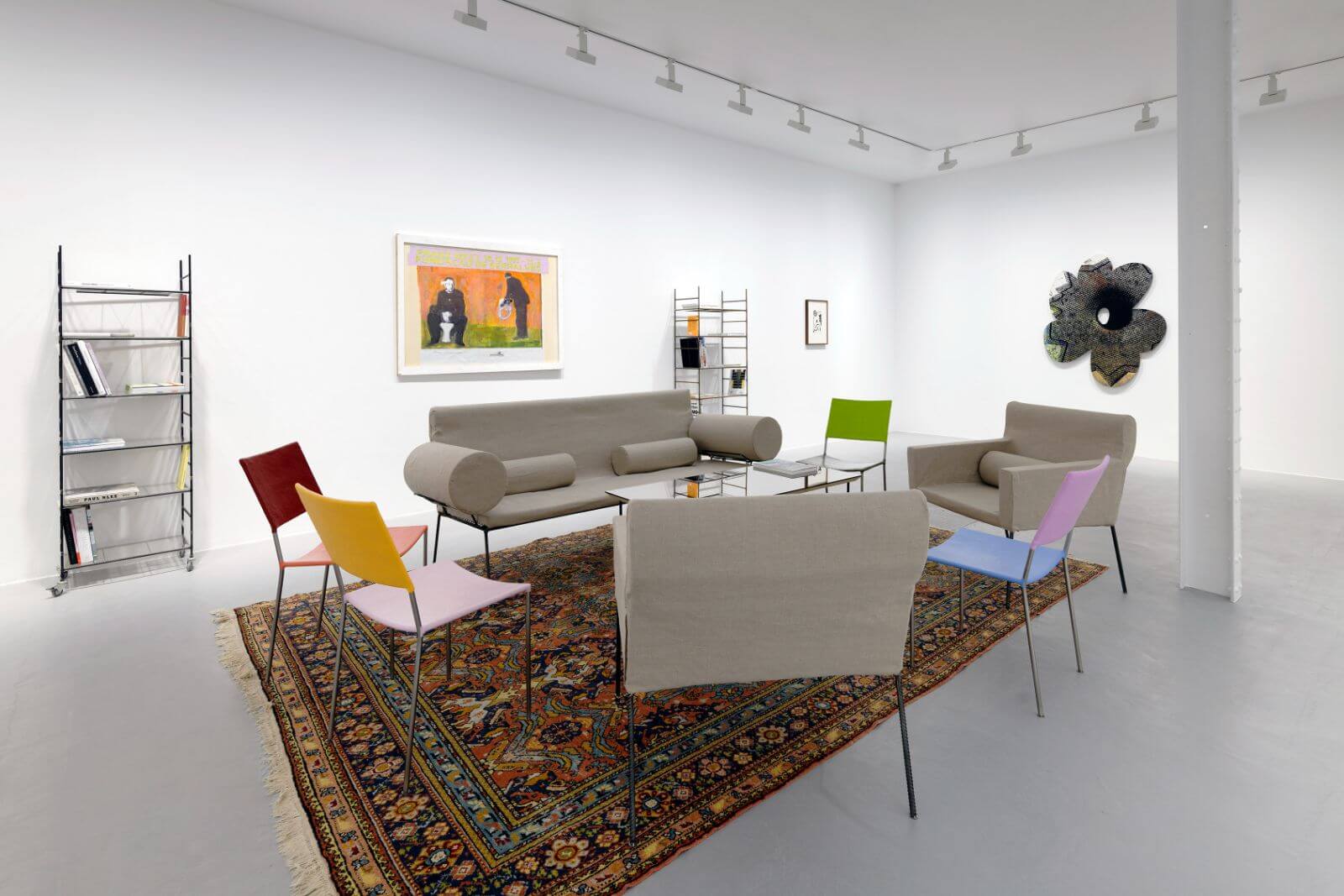
Exhibition view, ‘Franz West Furniture’ at David Zwirner, Paris
COURTESY: David Zwirner
West began creating furniture in the early 1980s and came to see furniture-making as part of his practice. Indeed, his furniture was exhibited at the Venice Biennale in 1990 and Documenta in Kassel in 1992, among other shows.
West once called these pieces “’Adaptives’ for the human body at rest”; ‘Adaptives’ was the name that West gave to his portable works made out of ordinary materials. The best-known piece on view is ‘Künstlerstuhl (Artist’s Chair)’, 2006. From a distance, its form recalls that of foldable canvas camping chairs. Yet up close, one notices how it elevates the vernacular into an artwork. The seats and headrests are made in epoxy resin and acrylic lacquer, while the bright palette, such as the pairing of marshmallow pink and sherbet yellow, vividly recalls the tones of his monumental, abstract sculptures.
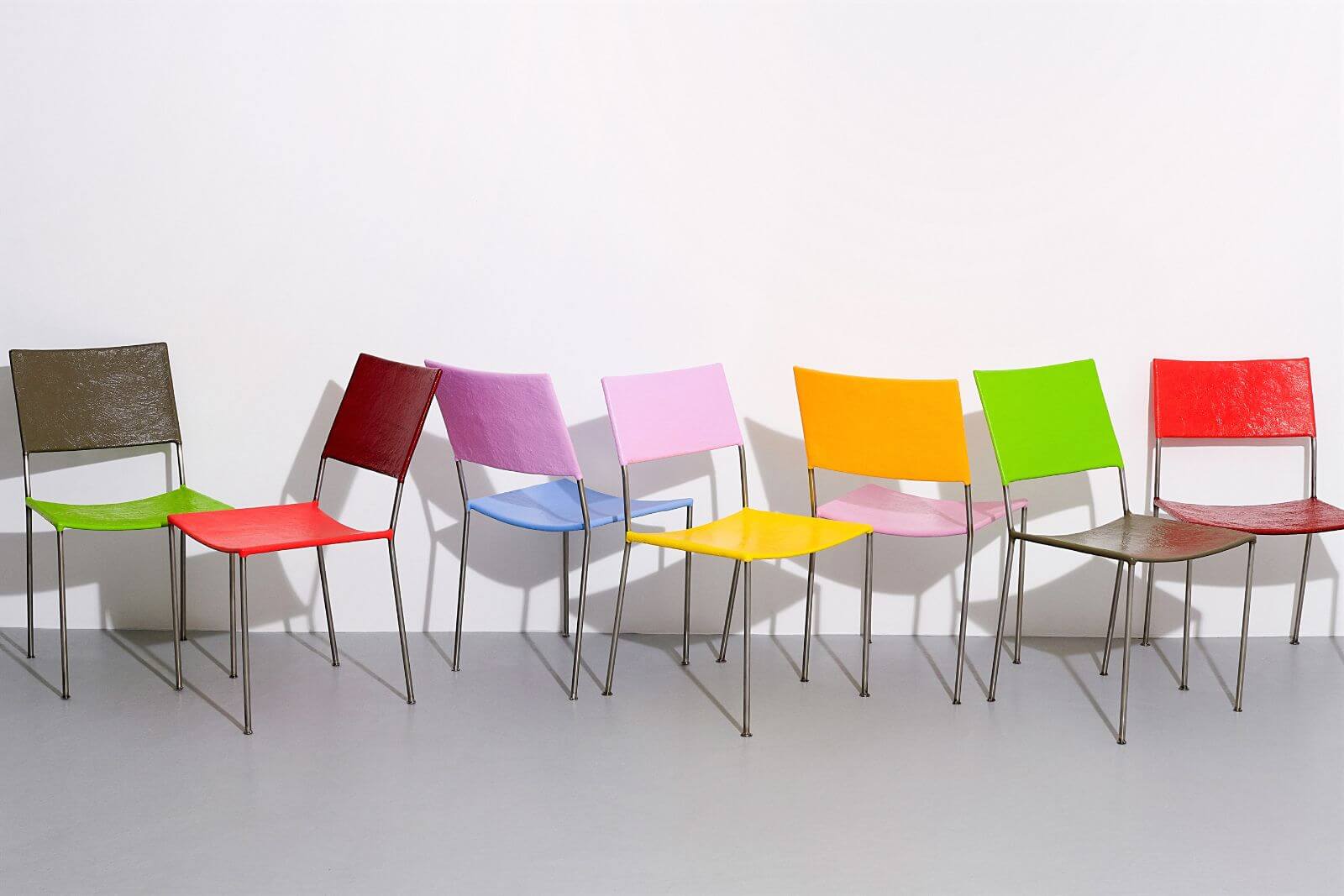
Franz West chairs
COURTESY: Archiv Franz West, Estate Franz West, and David Zwirner
/ PHOTOGRAPH: Matthieu Lavanchy © Archiv Franz West, © Estate Franz West
‘Marie & Alexandre: Horizons’ at Signé, until 15th December 2022
In the case of Marie & Alexandre – the design duo formed by Marie Cornil and Alexandre Willaume – competition can lead to friendship. The two met as finalists at Design Parade at Villa Noailles in Hyères and then decided to collaborate. Last year, they designed the scenography of an exhibition at Villa Noailles and this year they made a research-based project about the reactions of plants that currently features in an exhibition at Fondation Martell in Cognac.
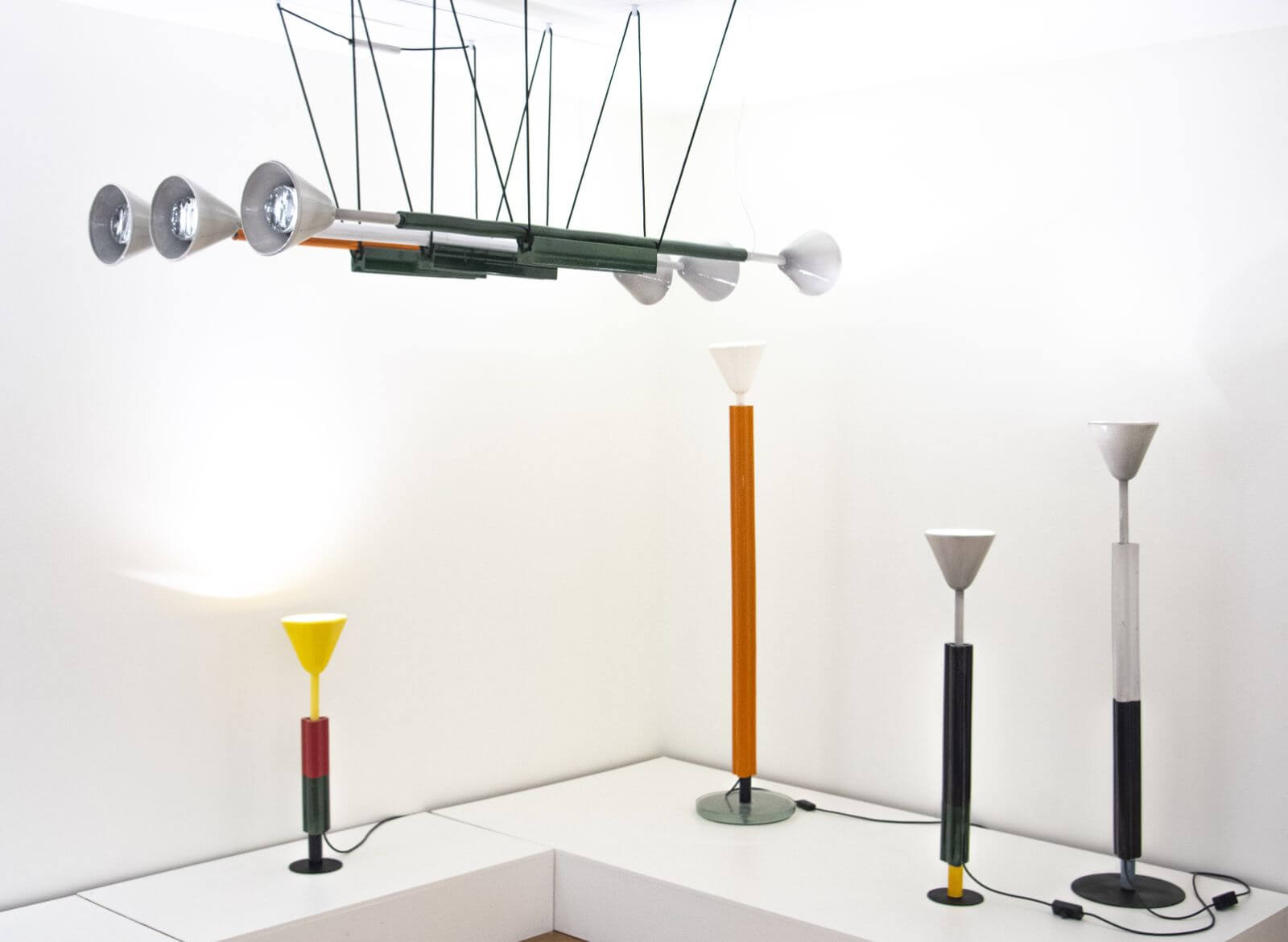
Exhibition view ‘Marie & Alexandre: Horizons’ at Galerie Signé
COURTESY: Marie & Alexandre & Galerie Signé
When gallerist Maxime Bouzidi – who opened his space, Signé, in St-Germain-des-Près last year – offered them carte blanche for a solo show, they dived into researching another field entirely: ceramic lighting. Cornil and Willaume worked with Alain Vagh Céramiques in Draguignan, on the realisation of the pieces, aiming to instil them with tension and emotion.
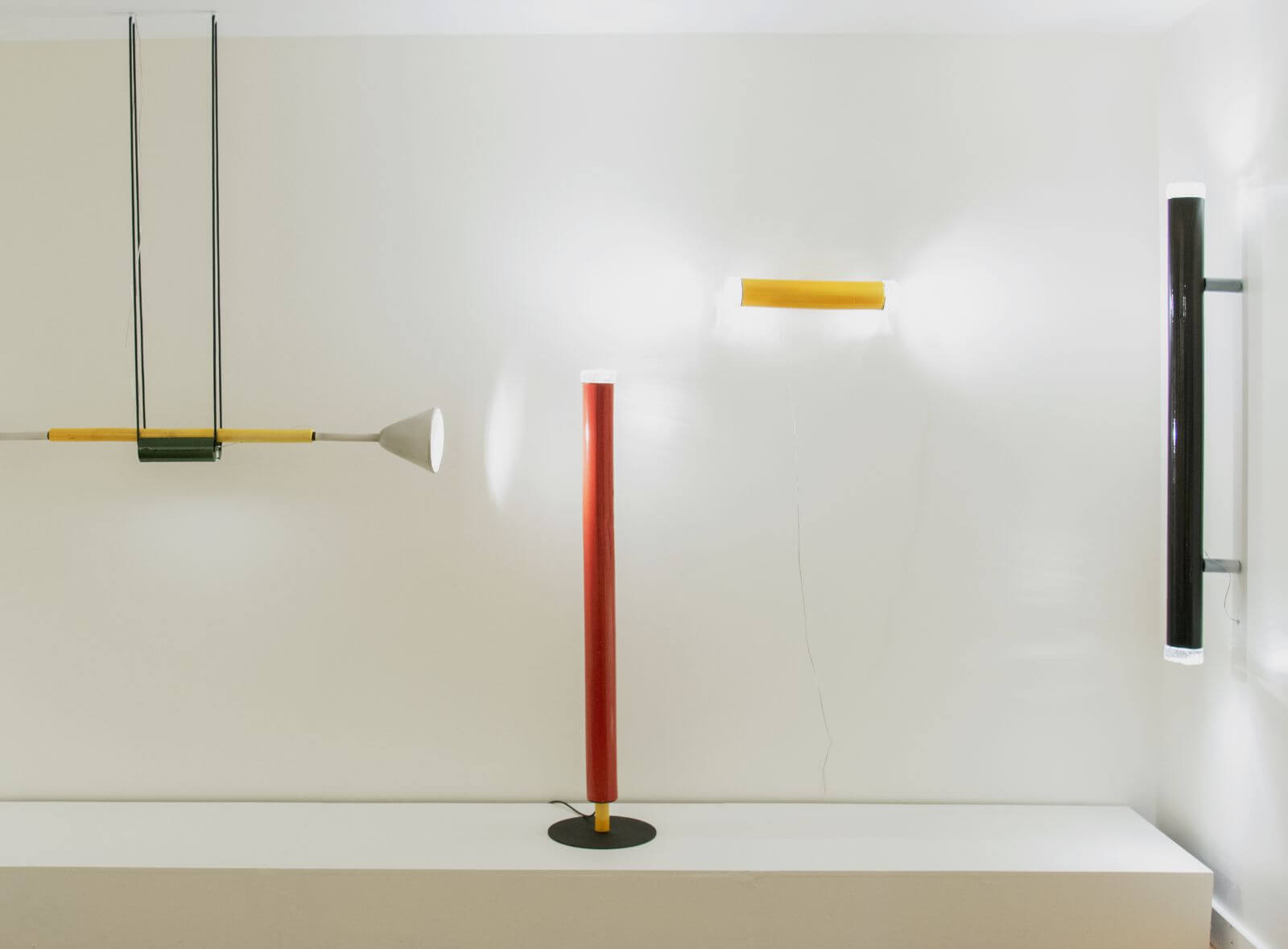
Exhibition view ‘Marie & Alexandre: Horizons’ at Galerie Signé
COURTESY: Marie & Alexandre & Galerie Signé
“We’d already worked on glass at Biot [known for its glassblowing studios in the south of France], where we made reflectors,” they say. “So working on lighting seemed obvious. What interests us is not the object itself but creating an atmosphere. The exhibition is like a folly of lamps made using local savoir-faire.”
Each piece is a composition of diverse extruded elements. Having a slight Memphis feel, the forms are fun, surprising and dynamic, such as a hoop through a swing lit at either end – one of several loosely inspired by gymnastics.
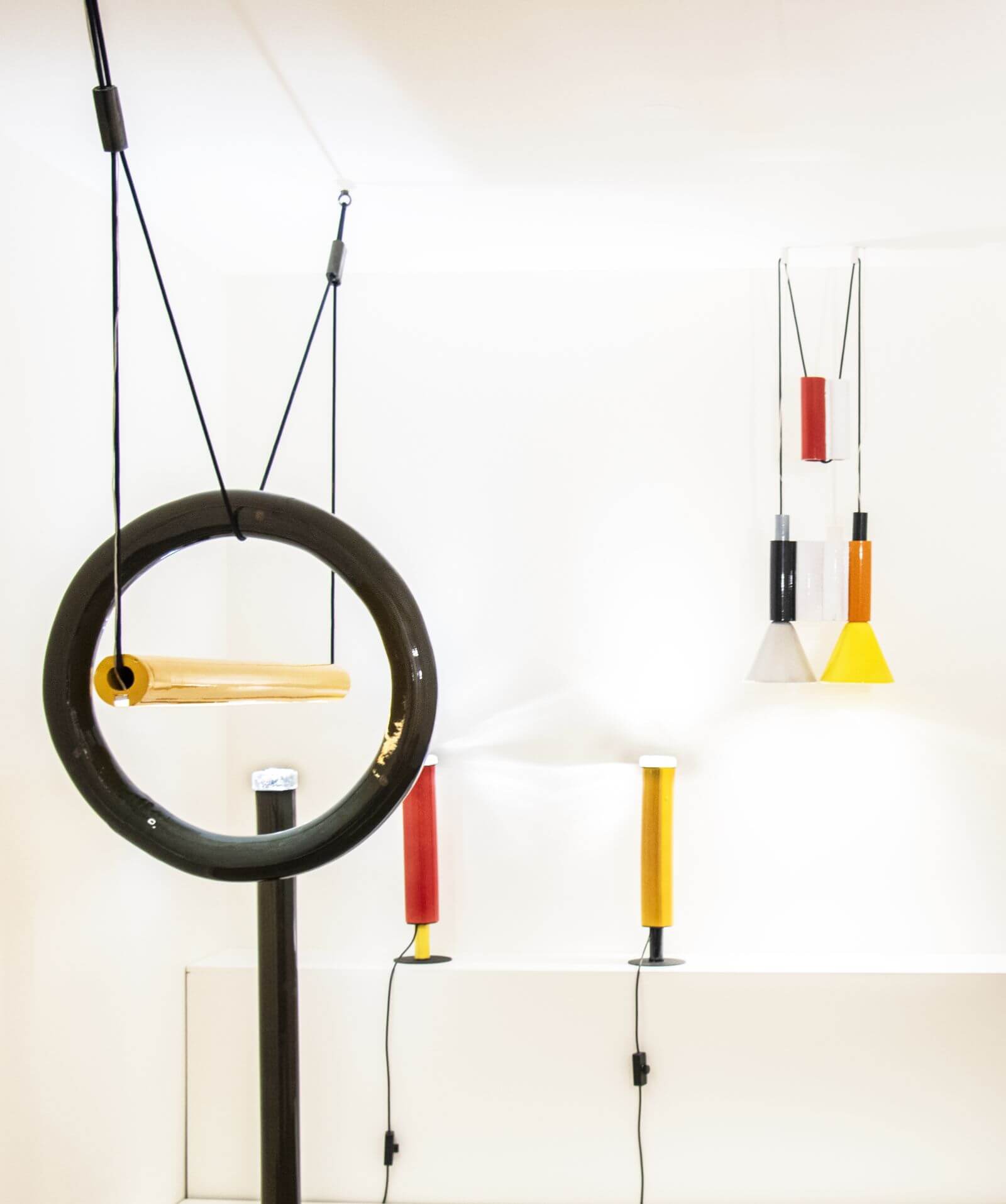
Exhibition view ‘Marie & Alexandre: Horizons’ at Galerie Signé
COURTESY: Marie & Alexandre & Galerie Signé
Although Cornil and Willaume team up regularly, they also have separate activities. Cornil, who studied at ECAL in Lausanne and worked briefly for Ronan and Erwan Bouroullec, has her own studio while Willaume, who studied at ENSCI Les Ateliers in Paris, has been working with Ronan Bouroullec for the last decade. Eschewing limiting themselves to any particular domain, they plan to explore tapestry in their next project.
Espace Commines, 8th – 12th September 2022
The work of over 20 emerging design studios and editors was brought together at Espace Commines in the Marais. The displayed works were sustainable, playful and rich in savoir-faire. Sébastien Coudert-Maugendre worked with Rhizome studio to make the stunning ‘RV03’ armchair; the top of the backrest in cream felt embellished with gold embroidery contrasts with the ribbed walnut.
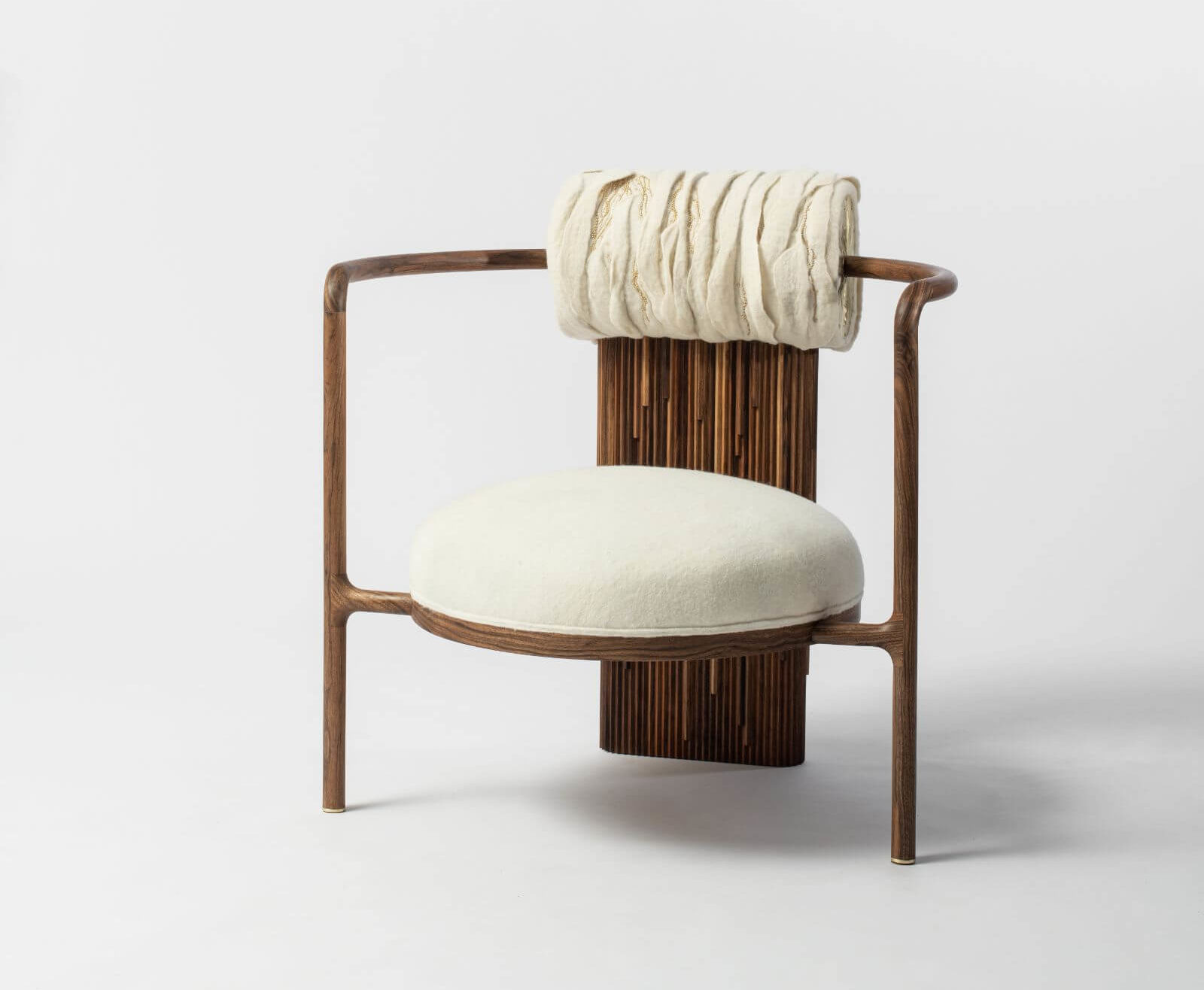
Sébastien Coudert-Maugendre, ‘RV03’ armchair, 2022
COURTESY: Sébastien Coudert-Maugendre
Kiki Goti meanwhile was represented by a mirror, lamp and console, all featuring straight and curvy striped patterns reminiscent of liquorice, from squidgy foam and acrylic. “I started making furniture pieces during Covid as I wanted to create sensorial, visually intriguing domestic objects using graphics,” says Greek-born, Brooklyn-based Goti, who launched her design studio SomePeople after studying architecture.
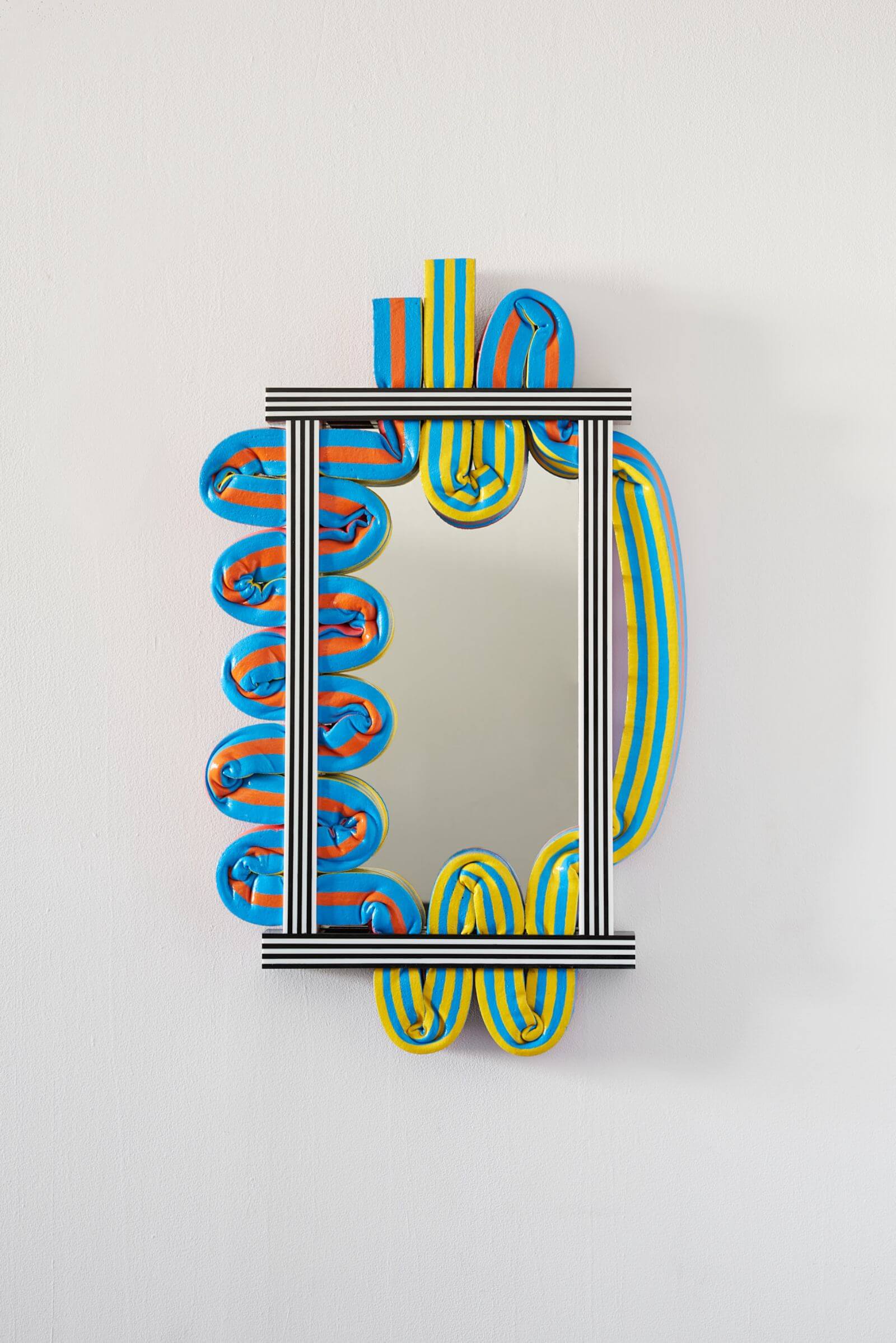
Kiki Goti, ‘U+II’ mirror, 2022
COURTESY: Kiki Goti
Erik de Laurens – a graduate of the Royal College of Art who worked for Norman Foster – showed a table made from a material manufactured from fish scales, a by-product of the fishing industry. Laurens is co-founder of French company Scale which invented the material, Scalite; the table exemplifies the wonders of the new material.
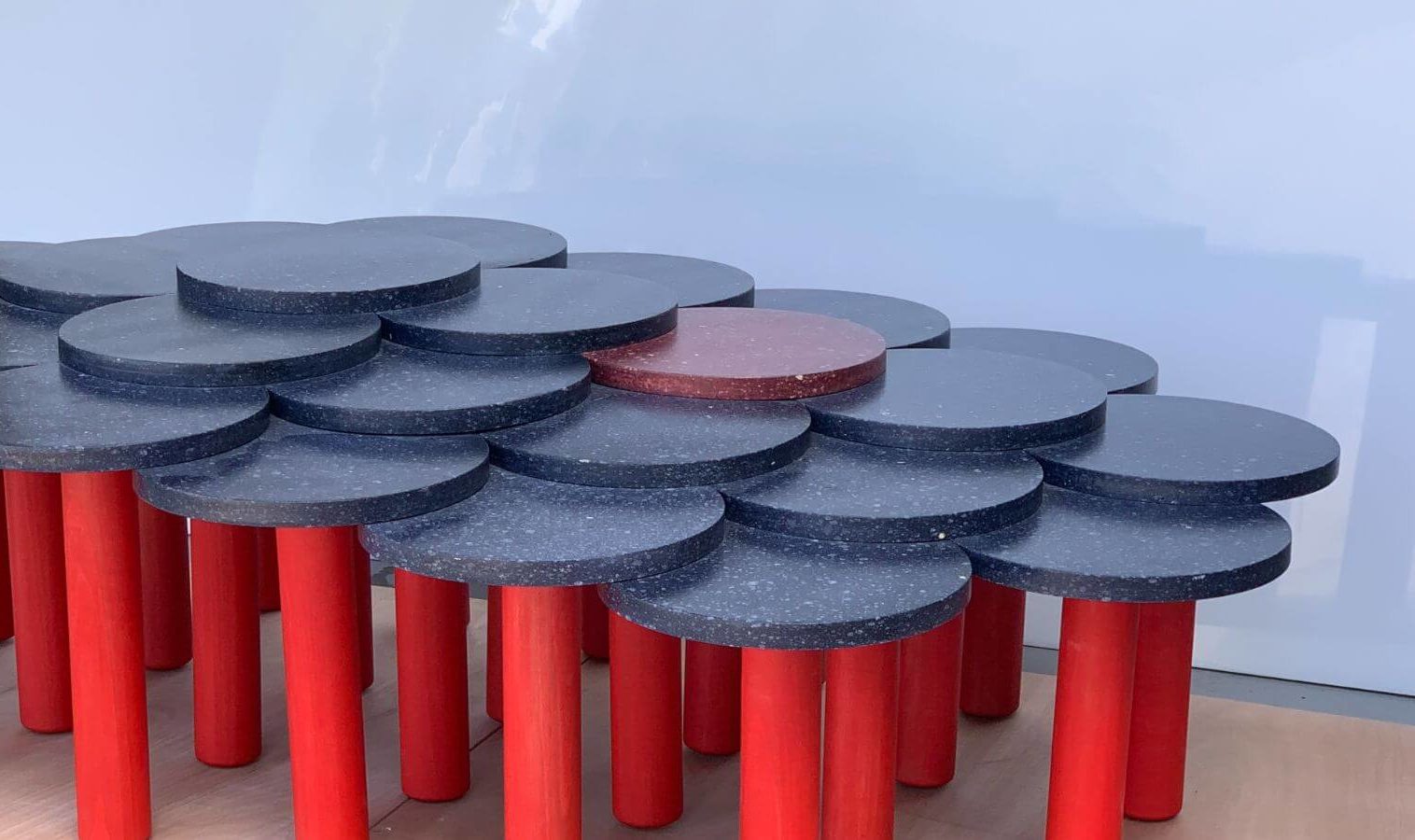
Erik de Laurens, table, 2022
COURTESY: Erik de Laurens
Among the other highlights was the presentation at Galerie Revel, including the ‘Rancid’ standing lamp (2022) by Zimbabwean ceramic artist Xanthe Somers – a voluptuous white glazed stoneware piece adorned with an orange crossword and dropped earrings.
Terre Libre – Création Ukrainienne at Cultural Centre of Ukrainian Embassy, until 17th September 2022
On the first floor of the Ukrainian Cultural Centre, 55 objects are displayed on a meandering black path dotted with ears of corn that were gathered from Ukraine’s fields burnt in August by Russia.
The exhibition – its title translating as “free earth” – assembles works by 33 talents, many of whom have sought refuge in Europe over the last seven months. Most of the pieces were created during the war.
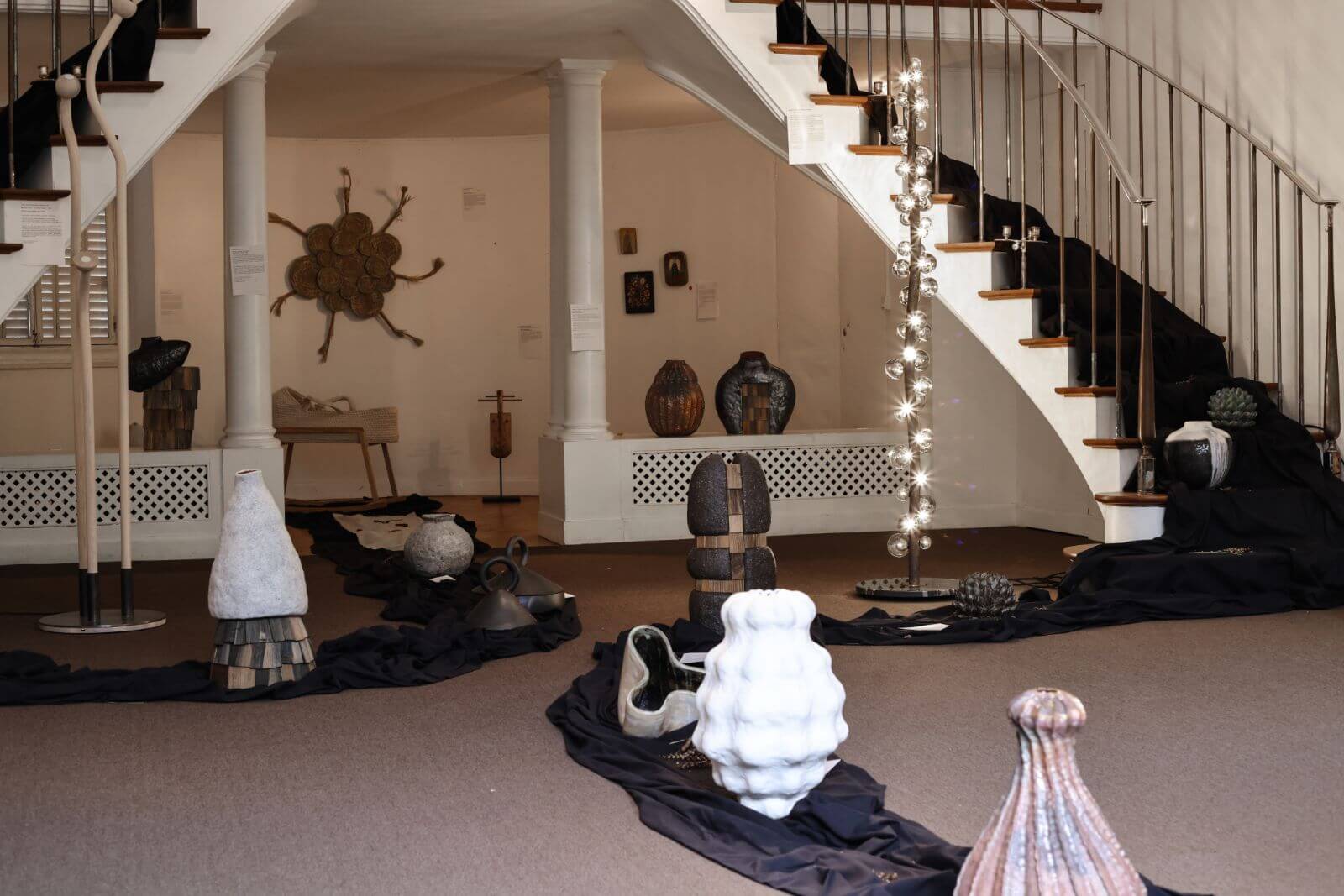
Dima Yakyb at Gorn Ceramics, ‘Flore Collection’, 2022
COURTESY: Gorn Ceramics & Galerie Sana Moreau, Paris / PHOTOGRAPH: Natalia Bogdanovska
“Since the start of the war, we’ve accumulated a lot of pain but that hasn’t diminished our hope, strength and capacity to create,” says curator Sana Moreau. “When I made this project, I allowed myself to think of something else so that these incredible works by Ukrainian designers, ceramicists and craftsmen could be discovered by the French public. It’s about transforming pain into beauty.”
The cathartic works are imbued with emotion and stories about Ukrainian traditions. The ‘Motanka’ ceramic vases by Andriy and Olesya Voznicki (now living in Amsterdam) are encrusted with wooden elements removed from old houses and applied in the same way as roofs are made in Carpathian rural villages. Meanwhile, Sofia Stanko’s ‘Balance’ objects in organic, harmonious forms from the ‘Oxygen’ collection were made from Ukrainian clay from the Slavyansk ceramics plant that was hit during an airstrike.
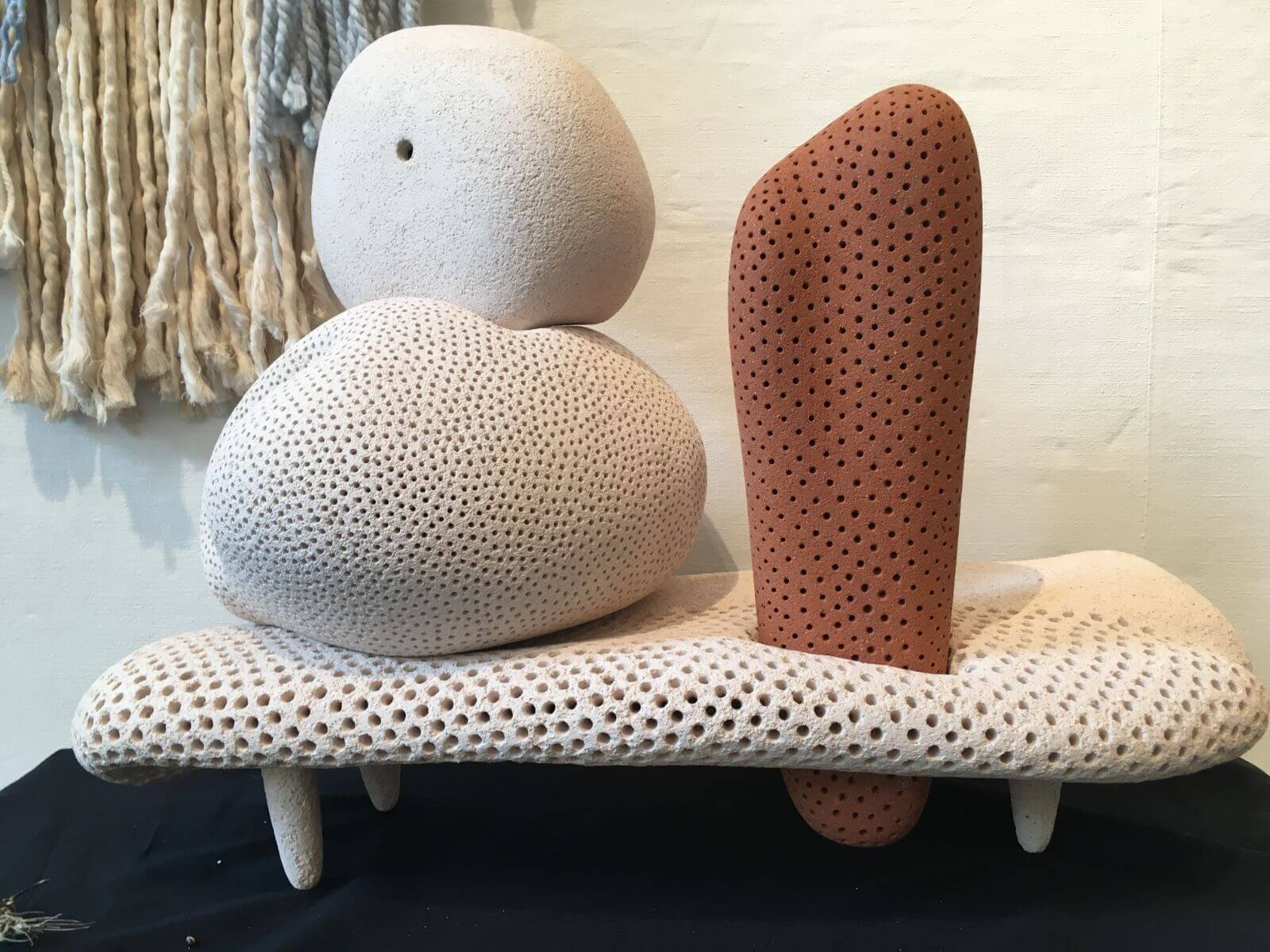
Sofia Stanko, ‘Balance’ ensemble of objects from ‘Oxygen’ collection, 2022
COURTESY: Sofia Stanko / PHOTOGRAPH: Anna Sansom
Also eye-catching are the ‘Flore’ ceramic vases by Dima Yakyb from Gorn Ceramics, a studio founded in Kiev by Bogdan Kryvosheya and Yuriy Myrko (who hails from Oposhnya, the pottery capital of Ukraine). The wavy lines of the iridescent pieces are inspired by coral reefs.
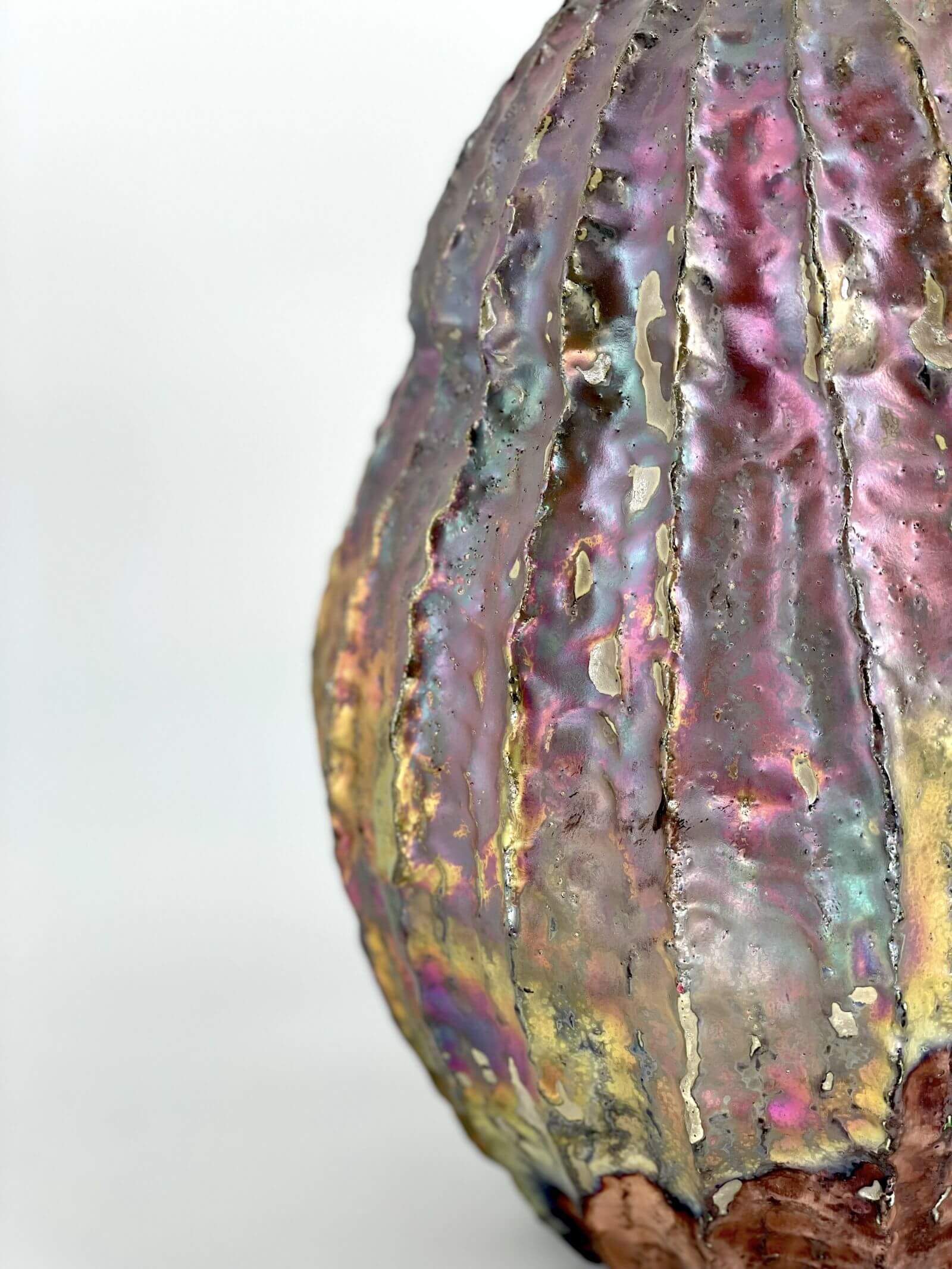
Dima Yakyb at Gorn Ceramics, ‘Flore Collection’, 2022 (detail)
COURTESY: Gorn Ceramics
Centre Culturel de l’Ambassade d’Ukraine, 22 avenue de Messine, 75008 Paris
Fondation Le Corbusier Maison La Roche, 8-10 Square du Docteur Blanche, 75016 Paris
David Zwirner, 108 rue Vieille du Temple, 75003 Paris
Galerie Signé, 33 rue Bonaparte, 75006 Paris
Espace Commines, 17 rue Commines, 75003 Paris
